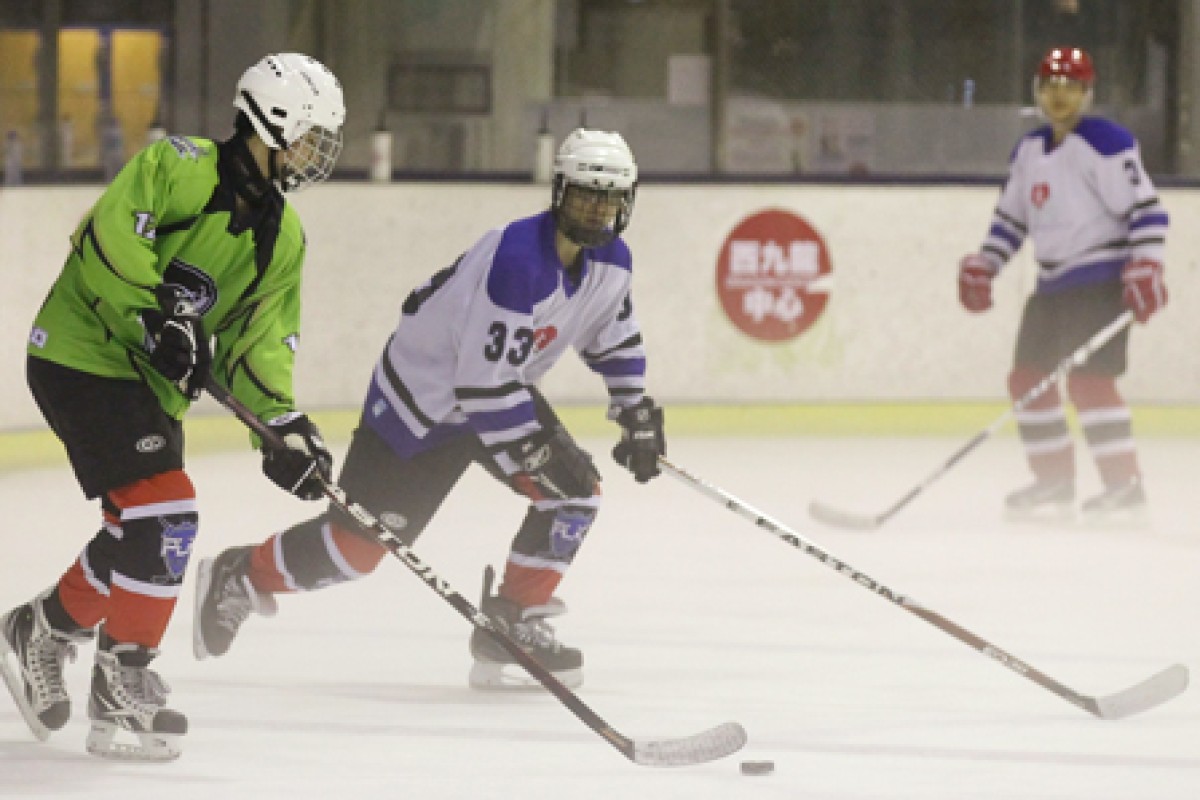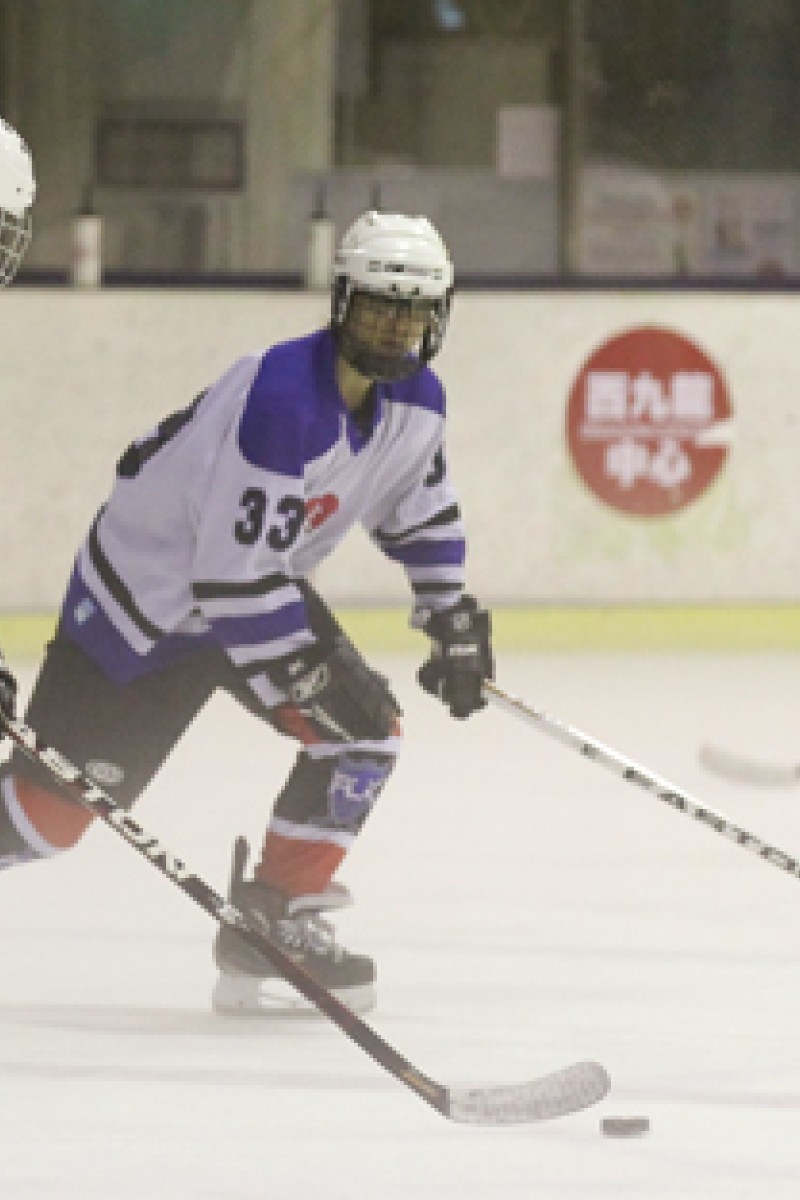
The huge cost of hiring an ice rink for training, and buying a six-man team's kit, including skates, helmets, sticks and shirts, means many schools never form a team.
The Tsz Wan Shan school's team, who train on ice only once or twice a month, showed their dominance over their four league rivals in May with a third consecutive Hong Kong Schools Ice Hockey Play-off title.
They need to do most of their training in a gym or outside on the playground - wearing training shoes instead of their ice skates.
"We rarely train on the ice at the rink so, when we do, we treasure the time," says core player and Form Five student Jason Ip Wai-ching.
Jason was voted the league's best goalie and most valuable player last season. "We go there maybe twice a month, so get there early to make the most of wearing skates out on the ice," he says. "All the rest of our training is done wearing normal sports shoes in the school gym."
Physical education teacher Samuel Cheung Chung-hang set up the school team almost by accident. He bought some professional ice hockey skates for himself in a sale in 2005 while on holiday in Canada.
Teacher Samuel Cheung (back row, left) with Justin Wong, (front, second right), Jason Ip (front, far right) and the rest of the team. Photo: Edward Wong
"I was skating at a rink in Hong Kong, when someone saw my professional skates and offered to sell me his ice hockey equipment.
After attending some ice hockey training sessions, Cheung decided to promote the sport at his school.
"The big concern was always going to be the cost of having a team play the sport," Cheung says. "But the local rink manager was keen to promote the sport in schools. So we got a special discount to use the rink. The discount and school subsidies meant our students were able to start playing."
In 2006, Cheung invited sport leaders and elite players in other sports teams to take a regular ice hockey class. Two years later, the school officially formed a team.
The school bought 12sets of team shirts, helmets and other equipment for players to use for training and matches.
This term the school has a squad of 14, plus seven promising players and 20 beginners.
Justin Wong Kwun-hang, 19, the captain last season who left school to start work in the summer, says the team's consistency means they will be the one to beat this season. "They are really well organised," Wong says. "When a player leaves school, there are others ready to step up and take their place."
Wong, who still trains with the team but cannot play in league matches, may soon be playing again for his former teacher.
Cheung hopes to set up a new team comprising former students. "My idea is to have a team of school graduates," he says. "There are many good former players. But it may take a few years before the team matures and settles down."
This season the champions are one of eight teams, split into two divisions, in the major tournament for local schools and youth teams, run by the Hong Kong Academy of Ice Hockey.
You might also like:
- Leon Lee learns that swinging a golf club takes more than just a whack. There's a science to it.
